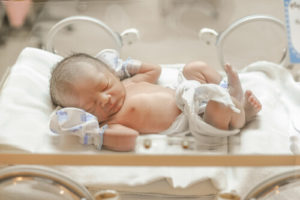Infertility Treatments

For most people, being told that they are infertile is simply devastating. Many couples around the world count on various fertility treatments in order to conceive a child. In fact, nearly 4 million children are born each year with the help of various fertility treatments including artificial insemination, intrauterine insemination, use of fertility-enhancing drugs, in vitro fertilization (IVF), and intra-cytoplasmic sperm injection (ICSI).
While infertility treatments have enabled countless families to realize their dreams of having a child, IVF, ICSI, and the fertility drug clomiphene citrate have been linked to an increased risk of serious and sometimes life threatening birth defects. If your child has suffered birth defects, please call Stern Law, PLLC at (800) 462-5772 for a free consultation.
What types of birth defects are potentially caused by infertility treatments?
Recent studies have shown that clomiphene citrate, IVF and ICSI have been associated with several types of birth defects, such as:
- Malformations of the eyes – These include defects where children are born with very little or no eyes, often resulting in blindness;
- Heart septal defects – This congenital disorder affects the septa of the heart;
- Reproductive organ abnormalities;
- Urinary system abnormalities;
- Cleft lips/palates – This condition involves the improper fusion of the lips and roof of the mouth;
- Esophageal atresia – This condition involves the esophagus not connecting to the stomach;
- Anorectal atresia – This spectrum of abnormalities can cause a child to be born with a malformed anus or without an anus;
- Beckwith-Wiedemann Syndrome – This overgrowth syndrome results in an increased likelihood of childhood cancer and other serious conditions;
- Anencephaly – This failure of the neural tube to close results in the absence of various parts of the brain, skull and scalp;
- Omphalocele – This defect of the abdominal wall causes the intestines, liver and other organs to remain outside of the body;
- Craniostenosis – This is the premature fusion of the skull;
- Dandy-Walker Syndrome – This is a brain malformation;
- Cloacal exstrophy – This involves abnormalities in the gastrointestinal and genitourinary tracts;
- Spina bifida – This is a condition in which a child is born with an exposed spinal cord, which could result in paralysis and other disabling conditions;
- Down Syndrome;
- Undescended testis;
- Club foot – This condition is medically referred to as congenital talipes equinovarus, and is a congenital deformity of one or both of a person’s feet. When a child is born with this condition, the affected foot appears to be rotated inward at the ankle.
How are birth defects caused by clomiphene citrate, IVF and ICSI?
The role that infertility treatments such as clomiphene citrate, IVF and ICSI play with regard to the increased risk of birth defects is not fully understood. The question remains as to whether it is the drug/procedure or the infertility itself that bears the greatest influence on the issue.
Researchers believe that the higher rate of birth defects associated with ovulation-inducing drugs, IVF and ICSI may be due to inferior sperm and not from the fertility treatment itself. Studies are currently underway to determine whether there truly is a causal link between various types of fertility treatments and birth defects.
What are the potential risk factors associated with IVF/ICSI and birth defects?
- Advanced maternal age (age 35 or older);
- Poor sperm motility;
- Abnormally shaped sperm;
- Poor maternal health;
- A history of children born with birth defects.
If you believe that you are at greater risk of having a child with birth defects, it is important to speak with your medical professional regarding the risks associated with undergoing fertility treatments, including IVF, ICSI and clomiphene citrate.
How are IVF/ICSI-related birth defects diagnosed?
There are a number of ways in which a medical professional can determine whether an unborn child is suffering from birth defects. The specific test or procedure depends upon the nature of the suspected condition:
- Ultrasound – There are a variety of different types of ultrasounds, including specialized or targeted ultrasounds, that are able to produce images of a child in utero and target a suspected issue, such as abnormal fetal development and associated birth defects;
- Cordocentesis – This is a highly specialized procedure, also referred to as percutaneous umbilical cord blood sampling, that involves the extraction and testing of blood from the umbilical cord. This test is usually performed after the 18th week of pregnancy and is able to identify certain fetal chromosomal abnormalities;
- Amniocentesis – This test is administered to a pregnant woman so that amniotic fluid can be tested for fetal abnormalities and conditions;
- Chorionic villus sampling – This form of prenatal diagnostic testing involves the removal of tissue to from the fetal sac in order to determine the existence of fetal abnormalities.
What is the treatment for IVF and ICSI-related birth defects?
Treatment for clomiphene citrate, IVF and ICSI-related birth defects depends upon the type of severity of each. For instance, if a child is born with a cleft palate or certain heart defects, he or she will require surgical intervention in order to correct the problem. Other types of birth defects such as club foot may simply require physical therapy and other similar measures to correct the problem. If your child was born with birth defects, it is important that you speak with your doctor in order to determine which treatment approach is best for your child.
Birth defects can be the result of congenital abnormalities for which no one, parents or medical personnel, is responsible. If you believe your child suffered a birth defect due to issues related to in vitro fertilization, intra-cytoplasmic sperm injection, or fertility drugs, please call Stern Law, PLLC at (800) 462-5772 for a free consultation.







